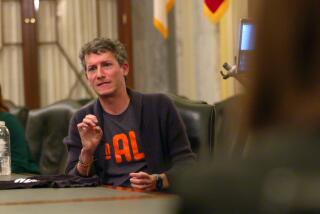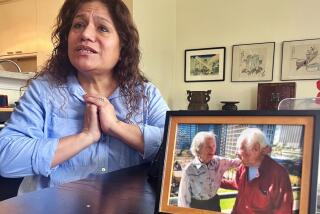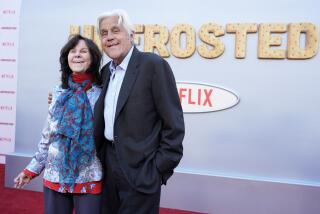My Turn: Love formed in Alzheimer’s crucible
- Share via
Alzheimer’s disease brought us together. The illness resulted in a relationship of greater intimacy and closeness than I ever could have imagined.
However, when I first met Dorothy I had no idea that she would be responsible for both the happiest and saddest periods of my life.
We met at a senior dance. Dorothy was a widow of nine years, and I was many years divorced. She had a PhD in theology, and I am a lifelong nonbeliever. We would joke about our different backgrounds while dancing. I did respiratory therapy, while she devoted her considerable talent to volunteer work.
From the beginning, some things were not quite right. Dorothy’s large house was filled to the brim with bags of clothing. She slept on the porch in a sleeping bag. Were these early signs of dementia? I don’t know. But when she saw my indoor bed, she immediately wanted to move in.
We joined a troupe that did historic dances, mostly of the Victorian era. This led us into Civil War reenacting. We taught tango and did waltz and tango exhibitions. We had the time of our lives dancing with each other.
Gradually I found myself doing more and more for her, and I enjoyed having this attractive and outgoing woman to look after. What I did in the beginning as courtly behavior slowly increased over the years. While we never married, I ended up taking full charge of her life.
I always will remember the day when she first became incontinent. We were in the medical building where I had just seen my eye doctor. A puddle appeared on the polished granite floor of the lobby. In time I dealt with the other kind of incontinence as well.
While her pleasant personality never changed, eventually Dorothy no longer wanted to stand or walk. I needed to ask for volunteer help, especially going up any stairs.
I soon realized that I should not inflict her needs upon others. Also, taking her along with me anywhere became impractical, and my constant bending and lifting were wearing me down physically. The time had come to place her in an assisted-living home, where she would receive better care than I was providing.
Dorothy adjusted instantly to the home, sensing that here she would receive the care she needed. But for me the time of heartbreak had begun. Ironically, I am the one who is suffering even though she is the one with the disease. She seems content in her dream world of dementia, while every day I am reminded of how much I have lost now that she has left my side.
Alzheimer’s disease provided a closeness that has been matched by the emptiness I now feel without her. Caring for Dorothy was the experience of a lifetime — a rewarding and fulfilling time that I will cherish as long as I may live.
Simons still feeds Dorothy lunch every day. He can be reached at [email protected].
My Turn is a forum for readers to recount an experience related to health or fitness. Submissions should be 500 words or fewer, are subject to editing and condensation and become the property of The Times. Email [email protected]. Read more at latimes.com/myturn.






